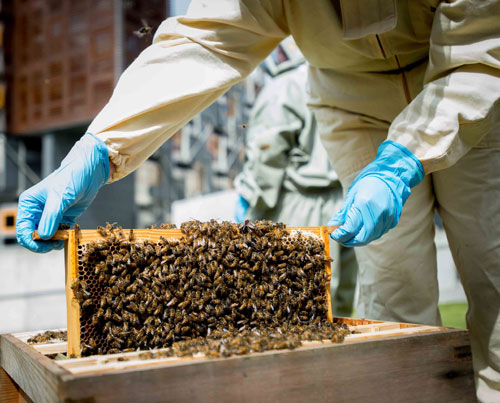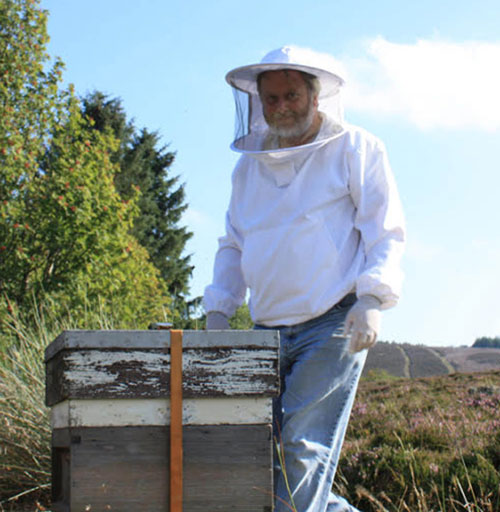SCOTTISH bees are on the “verge of starvation” with some hives producing as little as a sixth of the usual amount of honey because of bad weather.
Experts say low temperatures have resulted in the worst honey yield since 1985 with “very little” being produced.
Some beekeepers have been forced to spend tens of thousands of pounds feeding their colonies special sugar syrup to keep them alive.
The Scottish Beekeepers Association has put out a “starvation alert” urging members to be vigilant.
They have recommended beekeepers feed colonies now with a mix of sugar and water, something that is not usually done until September or October.

Murray McGregor, who owns one of the largest honey production companies in Scotland, spent £15,000 this year on additional feed for his bees.
The beekeeper based on Learilaw Farm near Broxburn, West Lothian, said: “Instead of having profit come in, which we would expect to be getting at this time of year, we have a £15,000 feeding bill just to keep the bees healthy.
“We’re feeding them a lot of syrup.”
He explained: “In the Eastern part of Scotland honey production has been particularly poor. We’ve produced around 15% of what we would hope to produce in a normal year.
“A lot of the heather in the east has been damaged due to the weather and this is having a particularly adverse effect on honey production.”
Gavin Ramsay, Scottish Beekeeper Association Health Officer, issued the “starvation alert” today (Friday).

Mr Ramsay, who is a full time beekeeper himself with hives in Tayside, said many of his bees have died as a result of the poor weather.
“It’s not a good year and I’m getting very little honey from my bees,” he explained.
“We have had one or two cases of entire colonies being wiped out.
“We have to keep an eye on the stores and often this year we have had to intervene and feed the bees ourselves.”
He explained: “We’re always keeping an eye on the weather forecast, perhaps later next week the weather will be picking up a bit and we’re hoping to see the bees leave the hive more often
“May and July are the key months for honey production, however, and those two months were particularly bad this year.”
The alert he issued warned: “Beekeepers are reporting colonies on the verge of starvation following a particularly poor run of weather in July.
“Especially at times of year when colonies are committed to raising a lot of brood, starvation can happen remarkably quickly.”
It continued: “In addition to emergency feeding of stocks with little reserves left, winter survival can be jeopardised if colonies go into winter too small or with insufficient young bees to take the colony through to spring.
“Feeding from now onwards, in advance of the usual September to early October main winter feed, can help by encouraging late brood rearing.”

